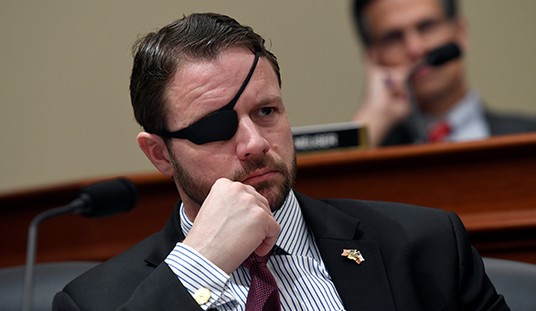“Cybersecurity legislation was supposed to be an easy get for the president. But the shadow of Snowden has tech companies and privacy groups still worried about sharing more data with the government,” writes Dustin Volz of the National Journal. That worry was so great that Silicon Valley’s biggest names did what Republican politicians would never do: they snubbed the president’s invitation to attend his cybersecurity summit according to the Hill.
The CEOs of Google, Yahoo and Facebook have declined invitations to attend President Obama’s tech summit Friday at Stanford University.
Though Apple CEO Tim Cook will be present, along with the top executives from firms like Mastercard and Bank of America, the absence of leaders like Mark Zuckerberg of Facebook and Marissa Mayer of Yahoo is notable.
Zuckerberg and Mayer were invited along with Google’s Larry Page and Eric Schmidt, but none will attend. Bloomberg News first reported the story late Wednesday.
Facebook, Yahoo and Google and Microsoft will send their top information security executives to the conference instead, Bloomberg reported.
Obama was set to propose something potentially toxic to the industry: increased government access to Silicon Valley’s databases, information that their users and clients had entrusted to firms. Government needed the information, or so the argument went, to protect America from its enemies.
In particular, Obama was going to define the standards for sharing data in exchange for a grant of legal immunity to companies from lawsuits arising from the compromise of privacy. By getting Silicon Valley onboard Obama hoped to have smoother sailing when selling the proposal to Congress. Unable to digest the entire length of salami, he was going to reduce it by slices.
At a White House cybersecurity summit on Friday, President Obama will sign an executive order structuring the information centers it wants companies to eventually use when sharing cyber threat data with the government. Officials believe it will make their cyber proposals more enticing to lawmakers….
These industry organizations — known as Information Sharing and Analysis Organizations (ISAOs) — don’t yet exist and the White House’s legislative proposal was short on details. It left some wondering what exactly the administration was suggesting. …
Companies will be given legal liability protection when sharing data with ISAOs. Explicitly tying legal liability to the information centers will hopefully make the overall plan “more acceptable to the public sector and privacy and civil liberties advocates,” [White House Cybersecurity Coordinator Michael] Daniel said.
Obama planned to put the Department of Homeland Security in charge of the entire edifice in order to gain the trust of the tech giants. USA Today reports, “most importantly to Silicon Valley, the president’s proposal is expected to cement the role of the Department of Homeland Security, rather than the National Security Agency, as the government lead for information-sharing with the private sector.”
By doing this, Obama hoped to overcome Silicon Valley’s reluctance to trust government to keep secrets. They’ve been burned before. Steven Levy of Wired wrote that the indiscretions of the NSA — Snowden in particular — “almost killed the Internet”. It is perhaps hyperbole, but not by much. The Snowden fiasco basically destroyed Silicon Valley’s trust relationship with its users. The revelations:
would be the start of a chain reaction that threatened the foundations of the industry. The subject would dominate headlines for months and become the prime topic of conversation in tech circles. For years, the tech companies’ key policy issue had been negotiating the delicate balance between maintaining customers’ privacy and providing them benefits based on their personal data. It was new and controversial territory, sometimes eclipsing the substance of current law, but over time the companies had achieved a rough equilibrium that allowed them to push forward. The instant those phone calls from reporters came in, that balance was destabilized, as the tech world found itself ensnared in a fight far bigger than the ones involving oversharing on Facebook or ads on Gmail. Over the coming months, they would find themselves at war with their own government, in a fight for the very future of the Internet. …
The tech companies quickly issued denials that they had granted the US government direct access to their customers’ data. But that stance was complicated by the fact that they did participate—often unwillingly—in a government program that required them to share data when a secret court ordered them to do so. Google and its counterparts couldn’t talk about all the details, in part because they were legally barred from full disclosure and in part because they didn’t know all the details about how the program actually worked. And so their responses were seen less as full-throated denials than mealy-mouthed contrivances.
Obama’s fix will be to give the tech companies immunity. That way the companies and individuals can still complain but they can’t sue. What he can’t give Silicon Valley back is the trust they lost when government let Snowden run off with the crown jewels. A cynic might argue that the trust was misplaced even then. Up until that moment the rubes thought their secrets were safe in the bank, behind their little passwords. The only thing Snowden changed was to reveal that all our secrets weren’t.
Snowden was the moment we grew up and realized that not only does Santa Claus probably not exist — except for Putin — neither does the Fourth Amendment. Judge Andrew Napolitano writing in Reason says that first the Patriot Act and then the innumerable grants of authority to surveil since then have reduced the Fourth to a dead letter.
Snowden revealed that Obama’s lawyers had persuaded these secret judges, without any opposition from lawyers representing the victims of this surveillance, that somehow Congress had authorized this and somehow it was constitutional and somehow it was not un-American to spy on all of us all the time. These judges actually did the unthinkable: They issued what are known as general warrants. General warrants were used against the colonists by the British and are expressly prohibited by the Fourth Amendment. They permit the bearer to search wherever he wishes and seize whatever he finds. That’s what the NSA does to all of us today.
Last week, we learned how deep the disrespect for the Constitution runs in the government and how tortured is the logic that underlies it. In a little-noted speech at Washington and Lee Law School, Gen. Michael Hayden, the former director of both the CIA and the NSA, told us. In a remarkable public confession, he revealed that somehow he received from some source he did not name the authority to reinterpret the Fourth Amendment’s protection of privacy so as to obliterate it. He argued that the line between privacy and unbridled government surveillance is a flexible and movable one, and that he—as the head of the NSA—could move it.
The shame of the NSA is perhaps behind Obama’s move to transfer authority over to Homeland Security. That will fix it for sure. The shift is appropriate in more ways than one. The migration from NSA to DHS marks the final transformation of the War on Terror into Law Enforcement; the last step in the mutation of Warfare into Lawfare. The NSA at least notionally existed to fight enemies foreign. Henceforward that distinction will be abolished. “Homeland” means homeland.
In truth the destruction of privacy is the logical consequence of Lawfare. Once you buy the concept, the end of privacy follows. When fighting terror becomes about arresting individuals or zapping a person with a no-collateral missile, one needs evidence, not approximate intelligence. No longer is it possible to designate “enemy territory” by geography. You need a name, an address and a petabyte of incriminating information. In other words, you need to make the secrets of civilians transparent to the Guardians.
Some may regard this as an advance in civilization, but it is not without its disadvantages. Unlike the wars of the 20th century, there is no privileged position of “friend”, no frontline, no rear area. Since lawfare, unlike warfare, can occur everywhere, nationality, place of residence, citizenship — these mean nothing. Everyone is suspect except friends at court. Today Gawker says that president Obama partied with Bill Ayers during the recent wedding of White House chef Sam Kass. The one thing two thousand years has not changed is the answer to the question: Quis custodiet ipsos custodes? Who guards the guardians?
Despite Silicon Valley’s deep suspicion of the initiative, there is every prospect that Obama will get his way. He is nothing but insistent and will overlook no opportunity to teach everyone how much we need him until a weary public gives him what he wants in the hope that he will leave them alone to watch the Superbowl. That’s the theory anyway.
Recently purchased by readers:
Fighting Power, German and U.S. Army Performance, 1939-1945 (Contributions in Military History)
Murphy, Samuel Beckett
Superfortress, The Boeing B-29 and American Airpower in World War II
American Sniper, The Autobiography of the Most Lethal Sniper in U.S. Military History [Kindle Edition]
Android Tablet Beginners User Guide, All Android Versions Including New 5.0 Lollipop [Kindle Edition]
Stonewalled, My Fight for Truth Against the Forces of Obstruction, Intimidation, and Harassment in Obama’s Washington [Kindle Edition]
The B-17 The Flying Forts [Kindle Edition], Martin Caidin
The Four Generations of Modern War [Kindle Edition], William Lind
Recommended:
The Unarmed Truth, My Fight to Blow the Whistle and Expose Fast and Furious [Kindle Edition]
The Girl on the Train, A Novel [Kindle Edition]
The Other Side of the Mountain, Mujahideen Tactics in the Soviet-Afghan War [Kindle Edition]
Did you know that you can purchase some of these books and pamphlets by Richard Fernandez and share them with you friends? They will receive a link in their email and it will automatically give them access to a Kindle reader on their smartphone, computer or even as a web-readable document.
The War of the Words for $3.99, Understanding the crisis of the early 21st century in terms of information corruption in the financial, security and political spheres
Rebranding Christianity for $3.99, or why the truth shall make you free
The Three Conjectures at Amazon Kindle for $1.99, reflections on terrorism and the nuclear age
Storming the Castle at Amazon Kindle for $3.99, why government should get small
No Way In at Amazon Kindle $8.95, print $9.99. Fiction. A flight into peril, flashbacks to underground action.
Storm Over the South China Sea $0.99, how China is restarting history in the Pacific
Tip Jar or Subscribe or Unsubscribe to the Belmont Club










Join the conversation as a VIP Member